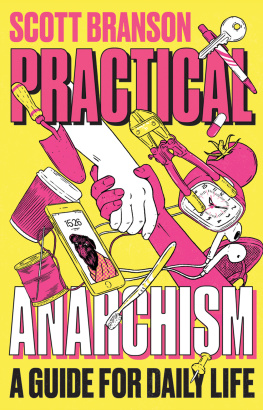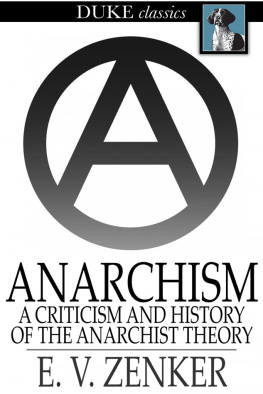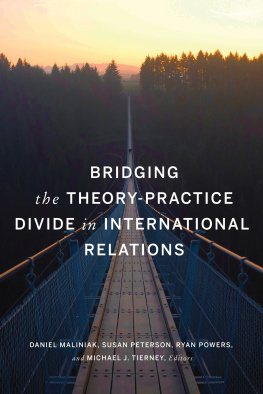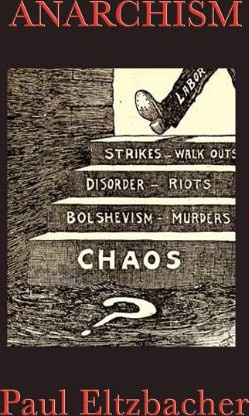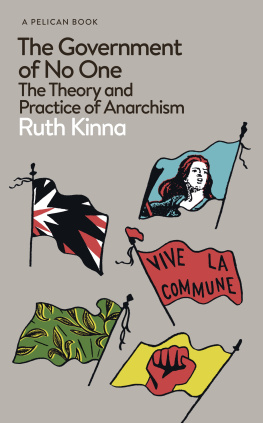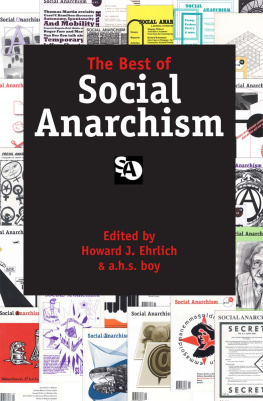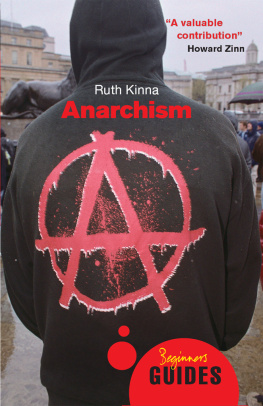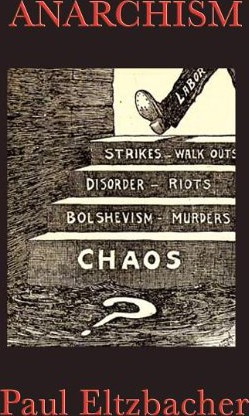Daniel Guérin - Anarchism: From Theory to Practice
Here you can read online Daniel Guérin - Anarchism: From Theory to Practice full text of the book (entire story) in english for free. Download pdf and epub, get meaning, cover and reviews about this ebook. publisher: Text::Muse, genre: Politics. Description of the work, (preface) as well as reviews are available. Best literature library LitArk.com created for fans of good reading and offers a wide selection of genres:
Romance novel
Science fiction
Adventure
Detective
Science
History
Home and family
Prose
Art
Politics
Computer
Non-fiction
Religion
Business
Children
Humor
Choose a favorite category and find really read worthwhile books. Enjoy immersion in the world of imagination, feel the emotions of the characters or learn something new for yourself, make an fascinating discovery.

- Book:Anarchism: From Theory to Practice
- Author:
- Publisher:Text::Muse
- Genre:
- Rating:4 / 5
- Favourites:Add to favourites
- Your mark:
- 80
- 1
- 2
- 3
- 4
- 5
Anarchism: From Theory to Practice: summary, description and annotation
We offer to read an annotation, description, summary or preface (depends on what the author of the book "Anarchism: From Theory to Practice" wrote himself). If you haven't found the necessary information about the book — write in the comments, we will try to find it.
Anarchism: From Theory to Practice — read online for free the complete book (whole text) full work
Below is the text of the book, divided by pages. System saving the place of the last page read, allows you to conveniently read the book "Anarchism: From Theory to Practice" online for free, without having to search again every time where you left off. Put a bookmark, and you can go to the page where you finished reading at any time.
Font size:
Interval:
Bookmark:
Retrieved on October 26, 2009 from www.geocities.com
There has recently been a renewal of interest in anarchism. Books, pamphlets, and anthologies are being devoted to it. It is doubtful whether this literary effort is really very effective. It is difficult to trace the outlines of anarchism. Its master thinkers rarely condensed their ideas into systematic works. If, on occasion, they tried to do so, it was only in thin pamphlets designed for propaganda and popularization in which only fragments of their ideas can be observed. Moreover, there are several kinds of anarchism and many variations within the thought of each of the great libertarians.
Rejection of authority and stress on the priority of individual judgment make it natural for libertarians to profess the faith of anti dogmatism. Let us not become the leaders of a new religion, Proudhon wrote to Marx, even were it to be the religion of logic and reason. It follows that the views of the libertarians are more varied, more fluid, and harder to apprehend than those of the authoritarian socialists whose rival churches at least try to impose a set of beliefs on their faithful.
Just before he was sent to the guillotine, the terrorist Emile Henry wrote a letter to the governor of the prison where he was awaiting execution explaining: Beware of believing anarchy to be a dogma, a doctrine above question or debate, to be venerated by Its adepts as is the Koran by devout Moslems. No! the absolute freedom which we demand constantly develops our thinking and raises it toward new horizons (according to the turn of mind of various individuals ), takes it out of the narrow framework of regulation and codification. We are not believers! The condemned man went on to reject the blind faith of the French Marxists of his period: They believe something because Guesde has said one must believe it, they have a catechism and it would be sacrilege to question any of its clauses.
In spite of the variety and richness of anarchist thinking, in spite of contradictions and doctrinal disputes which were often centered on false problems, anarchism presents a fairly homogeneous body of ideas. At first sight it is true that there may seem to be a vast difference between the individualist anarchism of Stirner (18061856) and social anarchism. When one looks more deeply into the matter, however, the partisans of total freedom and those of social organization do not appear as far apart as they may have thought themselves, or as others might at first glance suppose. The anarchist societaire is also an individualist and the individualist anarchist may well be a partisan of the societaire approach who fears to declare himself.
The relative unity of social anarchism arises from the fact that it was developed during a single period by two masters, one of whom was the disciple and follower of the other: the Frenchman Pierre-Joseph Proudhon (18091865) and the Russian exile Mikhail Bakunin (18141876). The latter defined anarchism as Proudhonism greatly developed and pushed to its furthest conclusion. This type of anarchism called itself collectivist.
Its successors, however, rejected the term and proclaimed themselves to be communists (libertarian communists, of course). One of them, another Russian exile, Peter Kropotkin (18421921), bent the doctrine in a more rigidly utopian and optimistic direction but his scientific approach failed to conceal its weaknesses. The Italian Errico Malatesta (18531932), on the other hand, turned to audacious and sometimes puerile activism although he enriched anarchist thinking with his intransigent and often lucid polemics. Later the experience of the Russian Revolution produced one of the most remarkable anarchist works, that of Voline (18821945).
The anarchist terrorism of the end of the nineteenth century had dramatic and anecdotal features and an aura of blood which appeal to the taste of the general public. In its time it was a school for individual energy and courage, which command respect, and it had the merit of drawing social injustice to public attention; but today it seems to have been a temporary and sterile deviation in the history of anarchism. It seems out-of-date. To fix ones attention on the stewpot of Ravachol is to ignore or underestimate the fundamental characteristics of a definite concept of social reorganization. When this concept is properly studied it appears highly constructive and not destructive, as its opponents pretend. It is this constructive aspect of anarchism that will be presented to the reader in this study. By what right and upon what basis? Because the material studied is not antiquated but relevant to life, and because it poses problems which are more acute than ever. It appears that libertarian thinkers anticipated the needs of our time to a considerable extent.
This small book does not seek to duplicate the histories and bibliographies of anarchism already published. Their authors were scholars, mainly concerned with omitting no names and, fascinated by superficial similarities, they discovered numerous forerunners of anarchism. They gave almost equal weight to the genius and to his most minor follower, and presented an excess of biographical details rather than making a profound study of ideas. Their learned tomes leave the reader with a feeling of diffusion, almost incoherence, still asking himself what anarchism really is. I have tried a somewhat different approach. I assume that the lives of the masters of libertarian thought are known. In any case they are often much less illuminating for our purpose than some writers imagine. Many of these masters were not anarchists throughout their lives and their complete works include passages which have nothing to do with anarchism.
To take an example: in the second part of his career Proudhons thinking took a conservative turn. His verbose and monumental De la Justice dans la Revolution et dans lEglise (1858) was mainly concerned with the problem of religion and its conclusion was far from libertarian. In the end, in spite of passionate anti-clericalism, he accepted all the categories of Catholicism, subject to his own interpretations, proclaimed that the instruction and moral training of the people would benefit from the preservation of Christian symbolism, and in his final words seemed almost ready to say a prayer. Respect for his memory inhibits all but a passing reference to his salute to war, his diatribes against women, or his fits of racism.
The opposite happened to Bakunin. His wild early career as a revolutionary conspirator was unconnected with anarchism. He embraced libertarian ideas only in 1864 after the failure of the Polish insurrection in which he played a part. His earlier writings have no place in an anarchist anthology. As for Kropotkin, his purely scientific work, for which he is today celebrated in the U.S.S.R. as a shining light in the study of national geography, has no more connection with anarchism than had his prowar attitude during the First World War.
In place of a historical and chronological sequence an unusual method has been adopted in this book: the reader will be presented in turn with the main constructive themes of anarchism, and not with personalities. I have intentionally omitted only elements which are not specifically libertarian, such as the critique of capitalism, atheism, anti-militarism, free love, etc. Rather than give secondhand and therefore faded paraphrases unsupported by evidence, I have allowed quotations to speak directly as far as possible. This gives the reader access to the ideas of the masters in their warm and living form, as they were originally penned.
Secondly, the doctrine is examined from a different angle: it is shown in the great periods when it was put to the test by events the Russian Revolution of 1917, Italy after 1918, the Spanish Revolution of 1936. The final chapter treats what is undoubtedly the most original creation of anarchism: workers self-management as it has been developed in the grip of contemporary reality, in Yugoslavia and Algeria and soon, perhaps, who knows, in the U.S.S.R.
Font size:
Interval:
Bookmark:
Similar books «Anarchism: From Theory to Practice»
Look at similar books to Anarchism: From Theory to Practice. We have selected literature similar in name and meaning in the hope of providing readers with more options to find new, interesting, not yet read works.
Discussion, reviews of the book Anarchism: From Theory to Practice and just readers' own opinions. Leave your comments, write what you think about the work, its meaning or the main characters. Specify what exactly you liked and what you didn't like, and why you think so.

